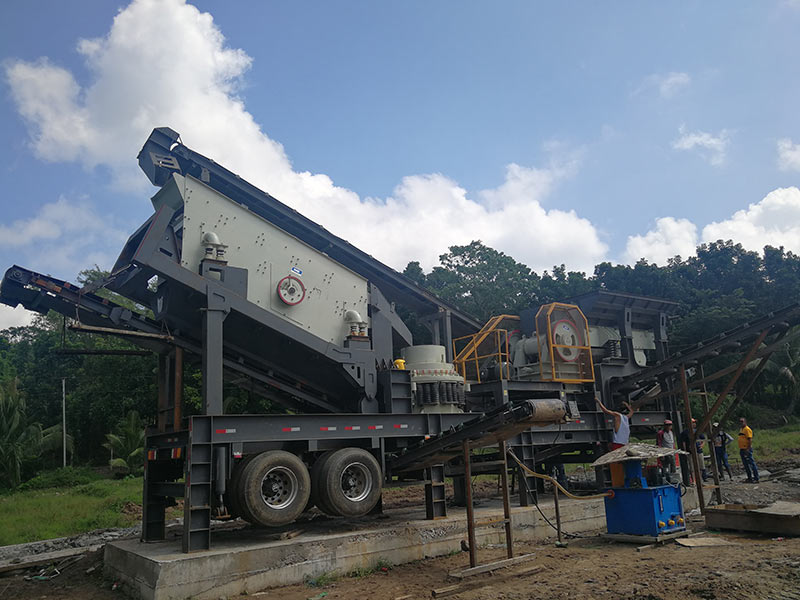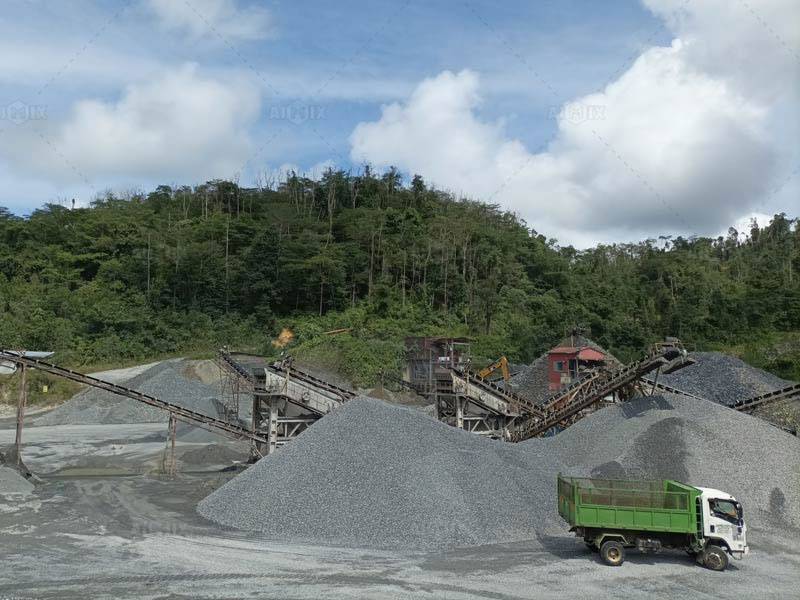Selecting the right screening equipment for a stone crushing plant is essential for maximizing efficiency and ensuring the production of high-quality aggregates. Screening equipment plays a crucial role in separating various sizes of crushed materials, which can then be used in different applications. This article will guide you through the process of choosing the appropriate screening equipment for your stone crushing plant, whether you are operating a stationary or mobile crushing plant.
Understanding the Role of Screening Equipment in Stone Crushing Plants
Screening equipment in a stone crushing plant(planta de trituracion de piedra) is used to classify crushed materials into different sizes, ensuring that the right material is available for specific uses. For example, fine aggregates might be required for concrete production, while larger aggregates are used in road construction. Proper screening improves the efficiency of the plant and ensures that the output meets quality standards.
In a mobile crushing plant, the screening equipment must be compact and capable of handling the mobility requirements. On the other hand, a stationary aggregate crusher plant may require larger, more robust equipment to handle a higher volume of materials. Choosing the right screening equipment depends on various factors such as material type, plant capacity, and desired output.

Key Factors to Consider When Choosing Screening Equipment
1. Material Type and Characteristics
The type of material being processed is one of the most important factors in selecting screening equipment. For example, if you are working with wet or sticky materials, you may need a screening system with self-cleaning features or a vibrating screen with a larger mesh size to prevent clogging. Materials with a high moisture content may require a more specialized screening system to prevent blockages and ensure smooth operation.
On the other hand, dry and non-sticky materials may require less complex screening systems, such as a simple vibrating screen or a trommel screen. Understanding the material’s characteristics will help you select the most efficient and cost-effective screening solution.
2. Screening Efficiency and Output Size
The efficiency of screening equipment is measured by its ability to separate materials into various sizes. The more accurate the separation, the higher the quality of the final product. When choosing screening equipment for your stone crushing plant, it’s important to consider the required output size and the volume of material that needs to be processed.
For a mobile crushing plant(planta de trituracion movil), where space is limited, you may need compact screening equipment that offers high efficiency while occupying minimal space. For stationary plants, larger screens with higher throughput may be necessary to handle larger quantities of material. Consider the capacity of the equipment in relation to your plant’s production goals.
3. Screening Equipment Types
There are several types of screening equipment commonly used in stone crushing plants. Here are some of the most popular options:
Vibrating Screens
Vibrating screens are widely used in both stationary and mobile crushing plants. They are effective for separating materials into different sizes and are available in various configurations. For example, multi-deck vibrating screens allow for multiple size separations in a single unit, improving overall plant efficiency.
Trommel Screens
Trommel screens are cylindrical screens that rotate to separate materials based on size. They are especially useful for screening fine materials and can handle wet or sticky materials more effectively than vibrating screens. Trommel screens are typically used in larger plants where space is less of a concern.
Horizontal Screens
Horizontal screens are similar to vibrating screens but are oriented horizontally instead of at an angle. These screens are effective in separating materials at a consistent rate and can be used in both stationary and mobile crushing plants. They are often used in aggregate crusher plants for high-volume operations.

4. Durability and Maintenance Requirements
The durability of screening equipment is crucial for ensuring long-term performance. Choose equipment that is built to withstand the harsh conditions of an aggregate crushing plant(planta trituradora de agregados), including exposure to dust, vibration, and heavy materials. High-quality materials and robust construction are essential for minimizing downtime and reducing maintenance costs.
Additionally, consider the maintenance requirements of the equipment. Some screening systems require more frequent maintenance and part replacements, while others are designed for low-maintenance operation. Opt for equipment that offers a balance between durability and ease of maintenance to keep your plant running smoothly.
5. Cost-Effectiveness
The cost of screening equipment can vary significantly depending on the type, size, and features. While it’s important to invest in high-quality equipment, it’s also essential to consider the long-term cost-effectiveness. Analyze the total cost of ownership, including purchase price, maintenance costs, and energy consumption.
For a mobile crushing plant, cost-effectiveness is even more critical, as the equipment must be versatile and efficient while keeping operational costs low. In contrast, stationary aggregate crusher plants may have a larger budget for purchasing more advanced screening systems, but the equipment should still offer a good return on investment.
How to Match Screening Equipment to Your Plant’s Needs
1. For Mobile Crushing Plants
In a mobile crushing plant of AIMIX Group, the screening equipment must be compact, portable, and capable of operating in various locations. Mobile screens should offer flexibility in terms of setup and transportation, allowing for easy movement between job sites. Equipment like mobile vibrating screens or modular screening units is ideal for such applications.
2. For Stationary Aggregate Crusher Plants
In a stationary plant, the screening equipment needs to handle larger volumes of material and offer higher throughput. Larger vibrating screens, trommel screens, or horizontal screens are suitable for these plants, as they can process significant amounts of material with high efficiency. The equipment should also be durable enough to handle the demands of a long-term operation.
Conclusion
Choosing the right screening equipment for your stone crushing plant is crucial for optimizing production and ensuring high-quality output. By considering factors such as material type, screening efficiency, equipment durability, and cost-effectiveness, you can select the best screening solution for your specific needs. Whether you are operating a mobile crushing plant or a stationary aggregate crusher plant, understanding these factors will help you make an informed decision and improve the overall performance of your stone crushing operation.